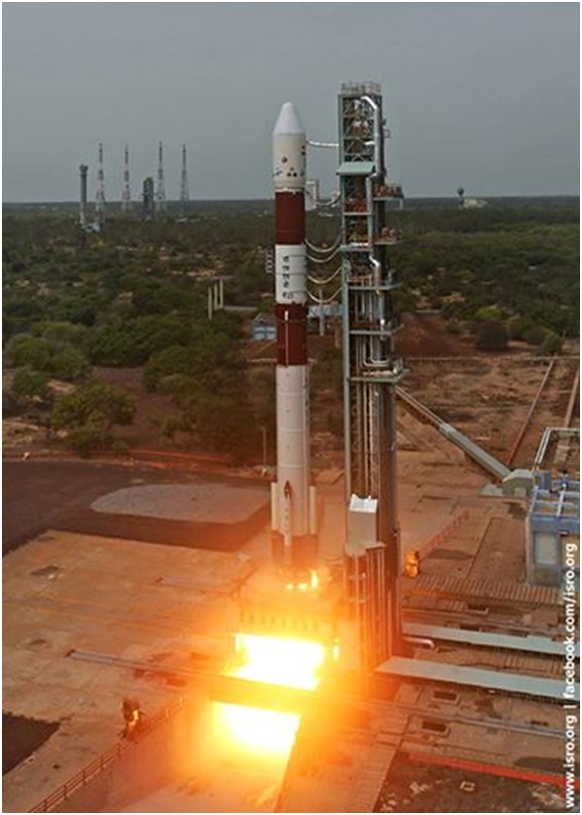It is a big day for the Indian Space Research Organisation for the launch of the PSLV C-23 rocket at 9:52 am. The PSLV-C23 rocket will be carrying satellites of France, Germany, Canada and Singapore.
After a perfect lift off from the First Launch Pad in Satish Dhawan Space Centre in Sriharikota at 9.52am witnessed by Modi, Indian Space Research Organisation’s workhorse Polar Satellite Launch Vehicle PSLV-C23 placed all five satellites into their intended orbits, one after the other between 17 and 19 minutes after liftoff, in textbook precision. Though the Mission Readiness Review Committee and Launch Authorisation Board had on Friday cleared the launch, the launch time was rescheduled to 9.52 AM today, a delay of three minutes, attributed to “probable space debris” coming in the rocket’s way.
Besides its primary payload of 714 kg French Earth Observation Satellite SPOT-7, PSLV C23 carried and placed in orbit 14 kg AISAT of Germany, NLS7.1 (CAN-X4) and NLS7.2 (CAN-X5) of Canada each weighing 15 kg and the 7 kg VELOX-1 of Singapore.
French satellite SPOT 7, identical to SPOT-6, which ISRO had launched in 2012, would be placed diametrically opposite to SPOT-6, forming part of the existing Earth observation satellite. European space technology company Airbus Defence and Space has built SPOT-7.
Germany’s AISAT satellite would focus on the global sea-traffic monitoring system with special emphasis on high traffic zones using AIS signals. It is also Germany’s first DLR satellite in the nano-satellite class.
NLS 7.1 and NLS 7.2 are from the University of Toronto, Institute of Aerospace Studies/ Space Flight Laboratory in Canada. Both payloads would perform Two-spacecraft precision formation flying using differential GPS with centimetre-level relative position and sub-metre level accurate position control system.
Satellite VELOX-1 from Nanyang Technological University, Singapore is a technology demonstrator for in-house design of image sensor, MEMS-based attitude determination and control system and inter-satellite RF link.
The five satellites were launched under commercial arrangements that ANTRIX (ISRO’s commercial arm) entered into with the respective foreign agencies.
ISRO has so far launched 35 satellites from 19 countries around the globe — Algeria, Argentina, Austria, Belgium, Canada, Denmark, France, Germany, Indonesia, Israel, Italy, Japan, Korea, Luxembourg, Singapore, Switzerland, The Netherlands, Turkey and United Kingdom, bringing a huge sum to the country as foreign exchange.
Aswin Kumar




3 Comments